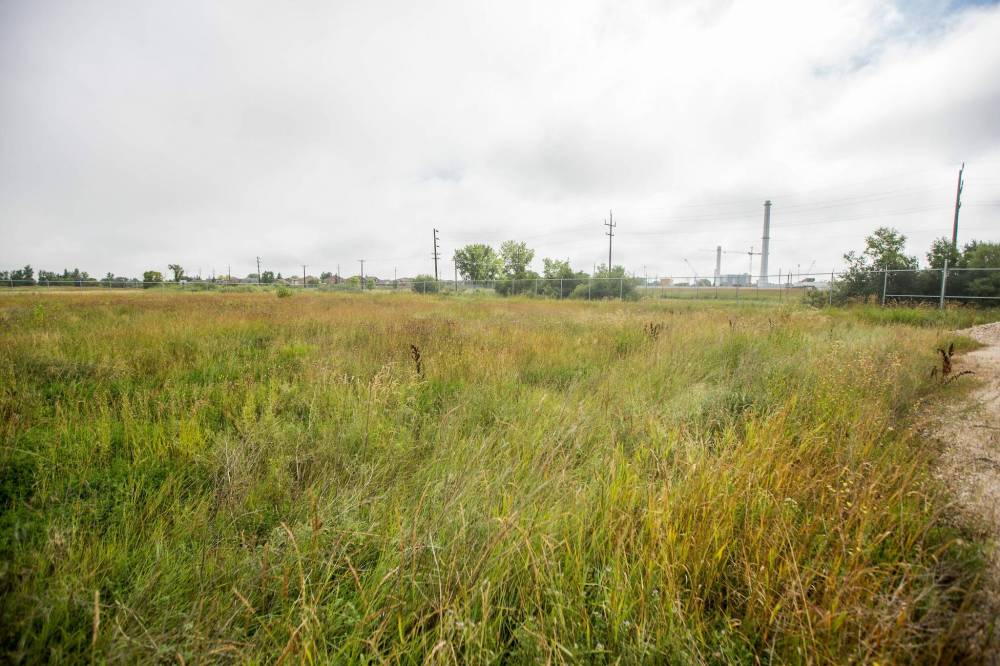Some city councillors question the controversial transfer of nearly $40 million from water and sewer revenues into general city coffers this year, just as the department faces massive sewage upgrade costs.
In a new motion, Coun. Brian Mayes calls on council to review the dividend as part of a water and sewer rate review expected later this year. The divided is expected to reach $39.6 million in 2024, $42.5 million in 2025, $45.2 million in 2026 and $48.2 million in 2027.
“There’s $40 million a year that we could be putting toward these water and sewer projects that’s being collected from water and sewer ratepayers. I think we might have to phase out the dividend… rather than do nothing on (required) projects because we don’t have the money,” said Mayes.

MIKAELA MACKENZIE / FREE PRESS FILES
The city faces a massive cost to upgrade its north end sewage treatment plant.
The St. Vital councillor said it’s time to debate the dividend’s future, as the city faces a massive cost to upgrade its north end sewage treatment plant. In a June report, city staff said that project’s price is expected to soar from $2.38 billion to about $3 billion, though an official estimate isn’t ready yet. The city is also required to complete an up-to $2.3-billion plan to reduce combined sewer overflows.
Mayes fears the prices could prove a major roadblock to completing the projects if the city can only raise water and sewer rates to pay for them.
“(Phasing out the dividend) would mean we’d have a lot more money without raising water and sewer rates and we could do some of these projects,” he said.
Coun. Russ Wyatt (Transcona) said the dividend should “absolutely” end.
“It was a backdoor tax increase… Better to be up front about the challenges facing our city and what our taxes need to be,” said Wyatt.
On Thursday, he raised a separate motion calling for the Public Utilities Board to gain the power to approve Winnipeg water and sewer rates, to add a layer of scrutiny to the process.
Without that oversight, Wyatt said ratepayers are at risk of paying massive increases to cover the sewage upgrade costs.
“Public Utilities Board can ask those tough questions and ensure that the consumer out there, our residents, are not going to get hammered over the next decade when it comes to their rates,” said Wyatt.
His motion calls for city council to ask the province for the change, noting the north end sewage upgrade was once expected to cost $795 million, which is now at risk of quadrupling.
Mayor Scott Gillingham said he’s open to debating the sewer and water dividend, noting the city reduced the percentage of utility revenues the department was required to transfer from 12 per cent to 11 per cent in 2019, when he was council’s finance chairman.
However, the mayor said the city would create a $40-million-plus budget hole each year if it suddenly eliminated the dividend.
“There would have to be a clear plan and understanding on where the funds would come from… we’d need some other funding source,” said Gillingham.
He rejected the claim the dividend is a “hidden tax.”
“There’s nothing hidden about it, we have it in our budget every year,” said Gillingham.
The mayor said giving PUB oversight of Winnipeg water and sewer rates is not among the top issues he wants to pursue with the provincial government.
Instead, he plans to focus on seeking provincial support for the north end sewage treatment plant upgrade, a new provincial funding model (that uses some form of growth revenue) and efforts to combat homelessness and crime.
“There (are) several files we’re working in partnership with the Province of Manitoba (on)… I’m not interested in this point in bringing yet another conversation to them, specific to this matter,” he said.
Gillingham suggested a new provincial funding model could help the city reduce its reliance on utility dividend revenue.
It isn’t the first time the city has been criticized for boosting its general revenue with water and sewer rates. In 2012, the PUB said it wanted to regulate Winnipeg’s water and sewer rates to get rid of the dividend after deeming it a “hidden property tax.”
In 2020, a provincial bill proposed to give the PUB the power to set water and sewer rates, but it was not finalized.
The sewer and water dividend and PUB motions will be considered next month.
joyanne.pursaga@freepress.mb.ca
X: @joyanne_pursaga

Joyanne Pursaga
Reporter
Joyanne is city hall reporter for the Winnipeg Free Press. A reporter since 2004, she began covering politics exclusively in 2012, writing on city hall and the Manitoba Legislature for the Winnipeg Sun before joining the Free Press in early 2020. Read more about Joyanne.
Every piece of reporting Joyanne produces is reviewed by an editing team before it is posted online or published in print — part of the Free Press‘s tradition, since 1872, of producing reliable independent journalism. Read more about Free Press’s history and mandate, and learn how our newsroom operates.
Our newsroom depends on a growing audience of readers to power our journalism. If you are not a paid reader, please consider becoming a subscriber.
Our newsroom depends on its audience of readers to power our journalism. Thank you for your support.